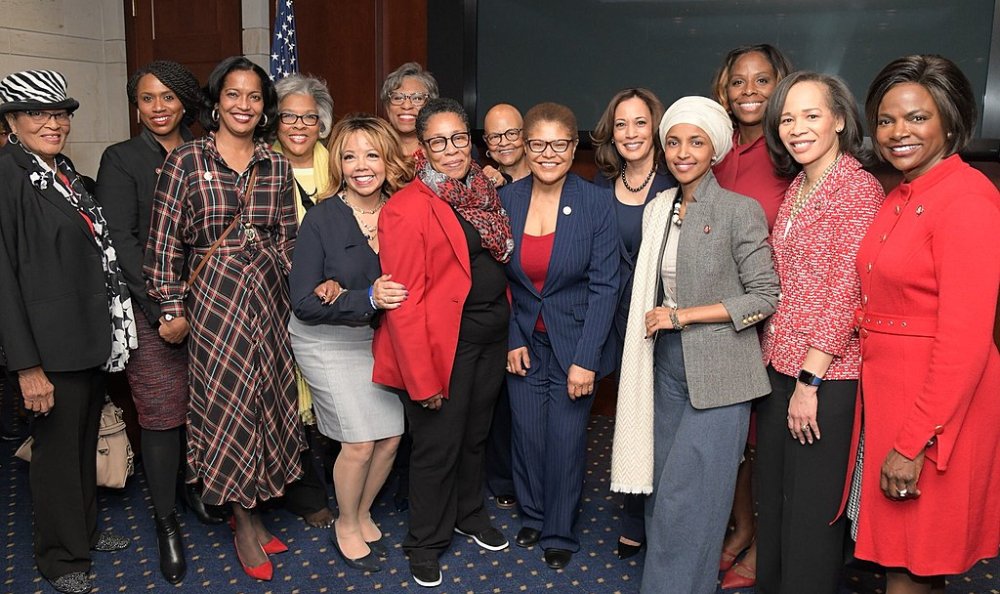While all voters have the choice Nov. 5 to vote for a woman president, fewer this year will have a choice about sending a woman to Congress.
According to research from the Center for American Women and Politics, the number of major-party women candidates for the U.S. House in 2024 is down by 21.4% from 2022. In addition to fewer stepping up to run, a record number of women incumbents also decided to leave office, including Congresswoman Cathy McMorris Rodgers (R-Spokane).
Overall, the drop in women congressional contenders this cycle is significantly greater among Republicans. Only 17.6 percent of the Republican House candidates are women.
“The infrastructure for recruiting and supporting Republican women is much smaller than the infrastructure that’s been built out over the years for recruiting and supporting Democratic women,” says Jean Sinzdak, associate director of the Center for American Women and Politics.
Sinzdak and others cite a variety of reasons that may have discouraged Republican and Democratic women from running for Congress in 2024 – fewer competitive districts (due in part to redistricting), the presidential race sucking up funding and media, and the nasty partisan politics that have deadlocked Congress. These factors may also have led to a decline in the number of men running for Congress this year, although men still greatly outnumber women candidates.
The 2024 Gender Parity Index published by the organization RepresentWomen, found that “progress in women’s political representation may stagnate or even backslide” and noted that “women are still underrepresented at every level of government in the U.S., comprising over 50% of the population but holding just under one-third of all elected positions.”
At the state level, the numbers present a more optimistic gender picture. While a drop also was reported nationwide in the number of major-party candidates running for state House seats, the decline is greater among men and almost entirely concentrated among Republicans. The Center for American Women and Politics found that, overall, women are a larger proportion of all major-party state House candidates in 2024 than 2022, and that the only group seeing a rise in state House candidacies is Democratic women.
For organizations such as Emerge, these positive numbers reflect years of efforts to recruit and train Democratic women. “We see more women wanting to step up and run for (state House seats) because it is a great first office to run for, ” says A’shanti Gholar, president of Emerge, which has trained more than 6,000 women, with 1,200 of its alumnae now holding office.
Gholar thinks Kamala Harris’s candidacy is propelling more women to get into politics “We’re in recruitment season right now for our signature programs in several of our states,” she said. “Those are going very well, so we’re already seeing her impact. The vice president is a transformational candidate, and that’s inspiring more women to step up and run for office.”
“Right now we’re in a period where young women are really excited about running,” echoes Susannah Wellford, founder and CEO of Running Start, which trains young women of all political leanings to get into politics. “We’re getting so many applicants to our program especially since we’ve had Kamala on the ticket.”
For women already in office, like Washington State Rep. Julia Reed, D-36, there is the satisfaction of making sure that women’s voices and priorities inform the legislative session. Washington State ranks fifth among states with the highest percent of women in its legislature (46 percent). But Reed says she understands why some women may balk at running for Congress.
“I think people feel that if you want to be a part of social change, that’s not heavily happening through Congress anymore because things are so deadlocked,” says Reed. Add to that the nastiness and potential for violence confronting members of Congress and she says it’s understandable that some women decide to run instead for local office or work on grassroots movements.
Or they decide to walk away. Emily Wicks is a former president of the Washington chapter of the National Women’s Political Caucus, which works to train and elect more women to state and local office. In May of 2020, Wicks was appointed to represent the state’s 38th Legislative District. She ran to retain her seat and served a full-term in the State Legislature from 2021 to 2022. Then she left.
Wicks says the strain on personal finances and relationships was too great, combined with constituents expecting her to be available 24-7. “I loved the work but hated the campaigning and that people thought they owned me. I still feel I’m impactful, and I’m less restricted in how that looks now.
“I’ve been a big proponent of women running for office,” adds Wicks. “We need those perspectives and those experiences to create policies that serve all people. If there are not enough women, we are missing that important voice. We still need women there and I haven’t figured out how we keep them there. I couldn’t do it.”
Discover more from Post Alley
Subscribe to get the latest posts sent to your email.
